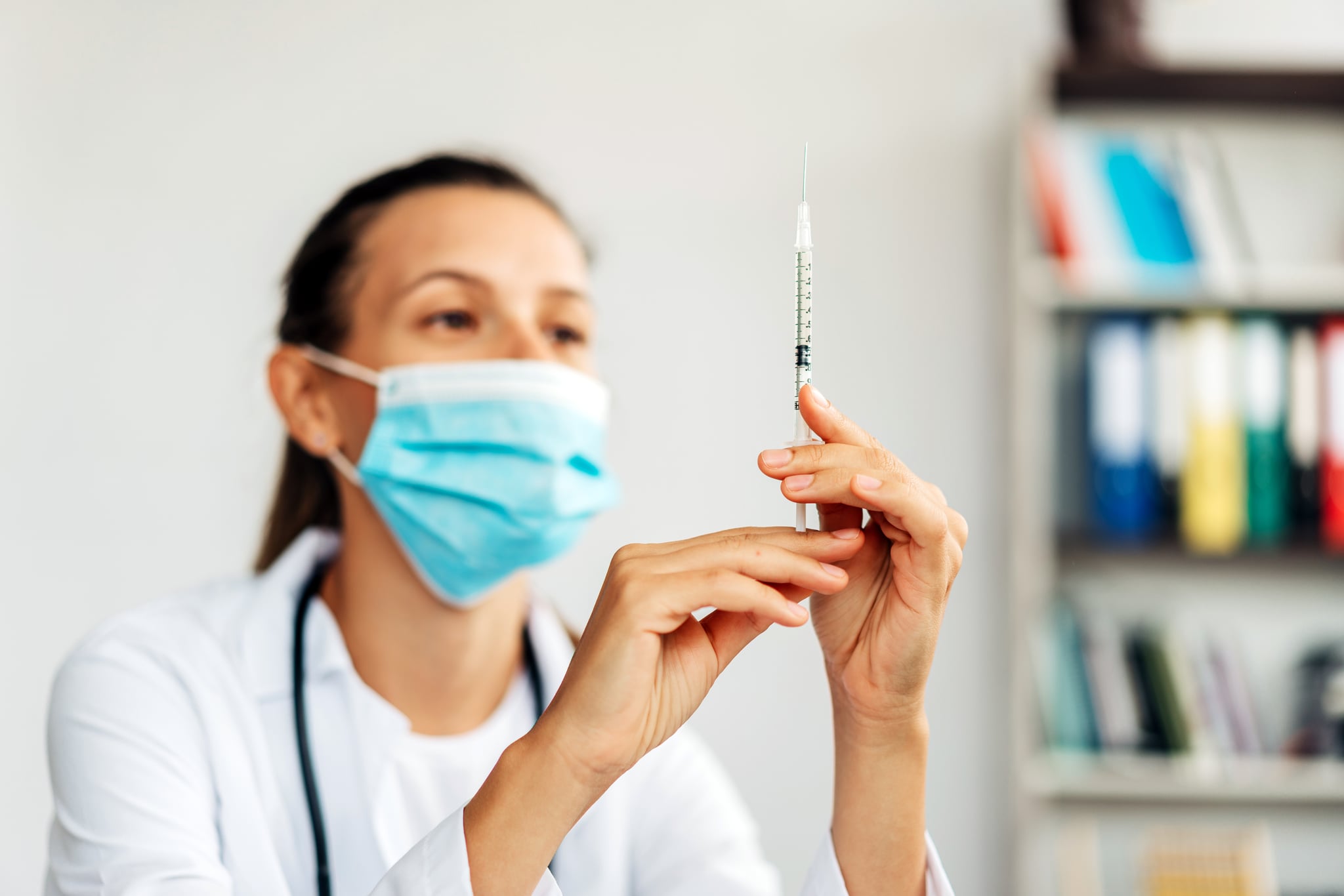
The Moderna and Pfizer vaccines require two separate doses to be fully effective, which is why it’s worrisome that almost eight percent of people who got their first shot are not going back for their second, according to new CDC research. That comes out to around five million people and represents an uptick from earlier in the rollout, when about 3.4 percent of people missed their second shot.
According to the New York Times, people are missing their second doses for a variety of reasons. Some people have decided to try their luck with just one dose. (The Pfizer vaccine is 52.4 percent effective after the first dose, compared to 95 percent effective after two doses. The Moderna vaccine is 80 to 90 percent effective after one dose and 94.5 percent after the second.) There were also issues of availability, as some pharmacies no longer had second doses of the correct vaccine when patients were due for one.
So how necessary is that second shot? It’s pretty crucial; POPSUGAR talked to Carlos Malvestutto, MD, MPH, an infectious disease doctor at the Ohio State University Wexner Medical Center, to find out why you should get the second dose if at all possible.
Why Do I Need 2 Doses of the COVID-19 Vaccine?
Put simply, getting a second dose of the Pfizer and Moderna vaccines leads to a significant increase in COVID-19 antibody levels compared to a single dose, Dr. Malvestutto said. (The two doses are identical in size.) Why are more COVID-19 antibodies a good thing? Because they’re the proteins your body makes neutralize the coronavirus pathogen, eliminating the virus before it leads to disease. Data has shown that the more COVID-19 antibodies you have, the better protected you are.
So when early trials showed higher levels of antibodies after a second shot, Pfizer and Moderna decided to make their vaccines double-dose. It comes down to simple reasoning. “We know that a second dose leads to a higher concentration of the neutralizing antibody that we want the body to produce,” Dr. Malvestutto said. “So, the higher the neutralizing antibody concentration, the better the protection is.” It’s not a novel concept; the Hepatitis B and Human Papilloma Virus (HPV) vaccines are also given in multiple doses to maximize antibody response.
Of course, not all of the COVID-19 vaccines available in the US or globally require two doses. The Johnson & Johnson vaccine only requires one shot, though the company is also conducting a study using two doses. “In preclinical trials, [Johnson & Johnson] found that they were achieving adequate levels of the production of these neutralizing antibodies,” Dr. Malvestutto explained. (The US government has paused in distributing the Johnson & Johnson vaccine due to blood clot risks, though the FDA and CDC have recently announced that the benefits of the vaccine outweigh that risk.)
Do I Need to Get Both Doses of the COVID-19 Vaccine?
Pfizer and Moderna are two-dose vaccines, so receiving both doses is crucial in ensuring maximum effectiveness. “People should not count on, ‘Okay, I had one, that’s good enough,'” Dr. Malvestutto explained. “Now that we have a vaccine, let’s make sure that we get the full protection that we can get from this.”
It is more challenging to get two doses, on both an individual and country-wide level, which is why we’re seeing that slowly-growing percentage of people skipping the second shot. Still, “we are going to do everything possible to make it as easy and as painless as possible for people to come back for that second shot,” Dr. Malvestutto emphasized. While one shot will provide some protection, getting both doses gives your body a significantly stronger defense. “If we know that it works best with two doses,” Dr. Malvestutto said, “then get the two doses.”
POPSUGAR aims to give you the most accurate and up-to-date information about the coronavirus, but details and recommendations about this pandemic may have changed since publication. For the latest information on COVID-19, please check out resources from the WHO, CDC, and local public health departments.
